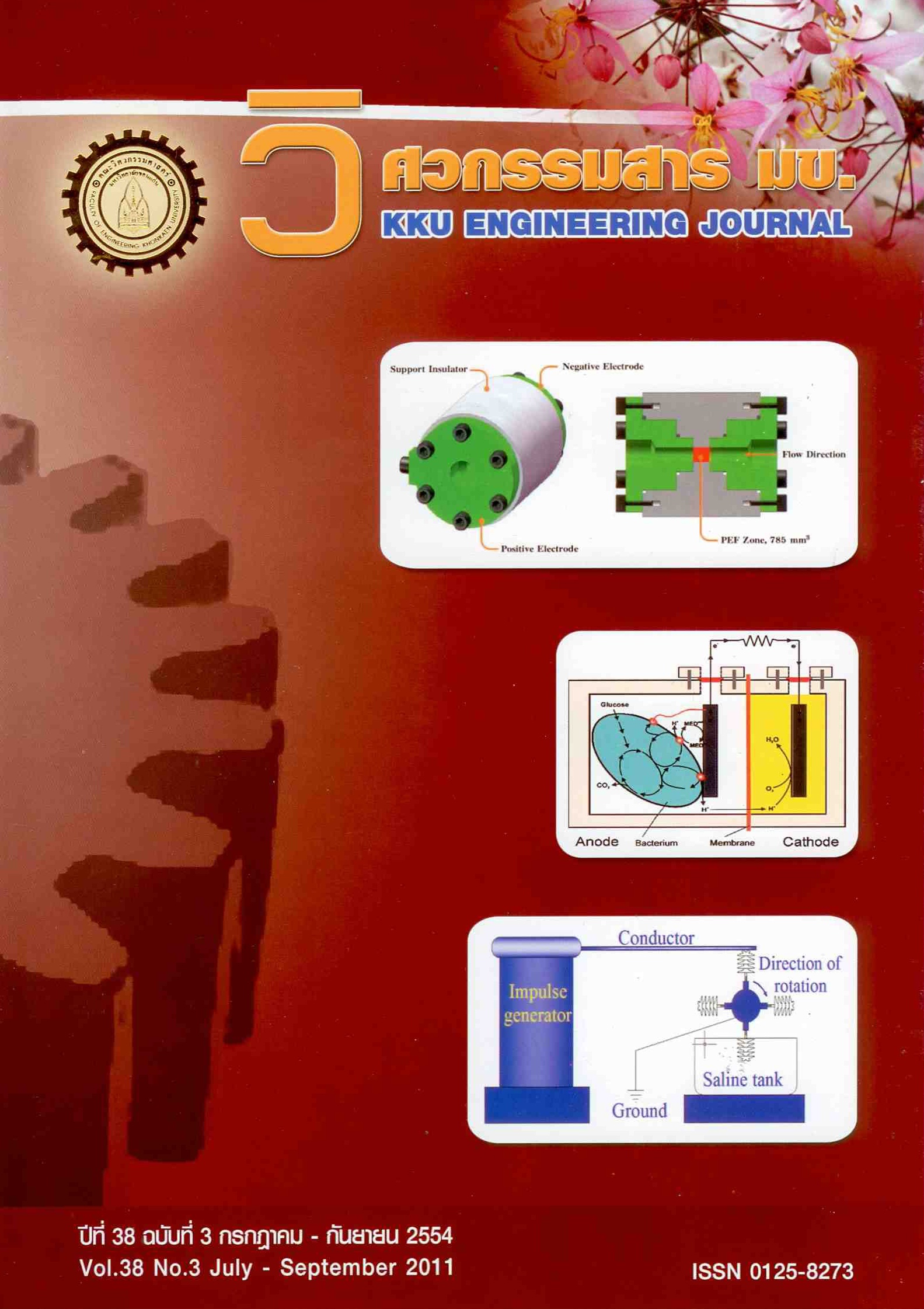Microbial Fuel Cell: Novel Technology “Convert Wastewater to Electricity”
Main Article Content
Abstract
Microbial fuel cell (MFC), a novel technology which has high efficiency to treat wastewater is able to
convert electrochemical energy to electricity without combustion. It uses biodegradation of exoelectrogen to
convert organic matter to electricity directly. This microorganism group can utilize various substrates such as
acetate lactate glucose sucrose and complex compound in wastewater. MFC has tremendous power to treat
organic waste in water over 90% and create power up to 1,000 W/m3 of wastewater. The factors that affect the
MFC performance are hydrogen partial pressure, over potential, electrode (distance, area and material),
mediator, catalyst, membrane, substrate, methanogen, ionic strength, temperature, pH, aeration, sulfate and
nitrate. However, the expensive cost of MFC materials is a limiting factor that has to be conceder to use the
low cost biomaterial instead. Therefore, the new configuration was designed and investigated the
performance. It was found that this invention has low cost and high efficiency to treat wastewater which is
possible to scale-up for practical application.
convert electrochemical energy to electricity without combustion. It uses biodegradation of exoelectrogen to
convert organic matter to electricity directly. This microorganism group can utilize various substrates such as
acetate lactate glucose sucrose and complex compound in wastewater. MFC has tremendous power to treat
organic waste in water over 90% and create power up to 1,000 W/m3 of wastewater. The factors that affect the
MFC performance are hydrogen partial pressure, over potential, electrode (distance, area and material),
mediator, catalyst, membrane, substrate, methanogen, ionic strength, temperature, pH, aeration, sulfate and
nitrate. However, the expensive cost of MFC materials is a limiting factor that has to be conceder to use the
low cost biomaterial instead. Therefore, the new configuration was designed and investigated the
performance. It was found that this invention has low cost and high efficiency to treat wastewater which is
possible to scale-up for practical application.
Article Details
How to Cite
Sukkasem, C. (2013). Microbial Fuel Cell: Novel Technology “Convert Wastewater to Electricity”. Engineering and Applied Science Research, 38(3), 347–362. retrieved from https://ph01.tci-thaijo.org/index.php/easr/article/view/7728
Issue
Section
REVIEW ARTICLES
This work is licensed under a Creative Commons Attribution-NonCommercial-NoDerivatives 4.0 International License.



